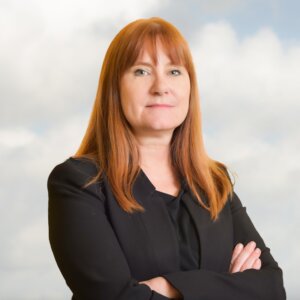LAist, an NPR news network member, spoke with partner Eve Hill about the findings of an investigation revealing that people with serious mental illnesses—including schizophrenia, bipolar disorder, or psychotic disorder—are living in California nursing homes that experts say aren’t meant to care for them, potentially in violation of federal law.
The article, entitled, “California Nursing Homes Are Becoming ‘De Facto Mental Health Centers,’” uncovered that thousands of people with serious mental illnesses are staying in nursing homes across the state that lack suitable housing and services – and the numbers are increasing. Moreover, staff at these facilities are not trained to care for residents diagnosed with a serious mental illness. Experts contend such residents may be staying in nursing homes instead of specialized mental health treatment centers because of a lack of appropriate community-based care services throughout the state.
As highlighted by LAist, the practice of keeping patients with mental health diagnoses in facilities without community-based care amounts to “warehousing” or “back door institutionalization,” resulting in horrific, and often dire, consequences. Documented reports from across the state share how many residents with serious mental illness have slipped out of nursing homes and gone missing for weeks or have been released with little regard for their needs. In one example, a woman with schizophrenia died of hypothermia after she was found face down and barely alive in the rain by a passerby, 12 miles from her nursing home. In another, a man with schizoaffective disorder who needed antipsychotic medication was released without a safe transition plan to an unlicensed group home, where he passed away from sepsis.
“It’s appalling,” Eve told the publication. “It’s very disappointing that this is still happening in spite of all the barriers we’ve tried to put up to prevent it from happening.”
By denying people with serious mental illness access to community-based care, California could be violating Olmstead v. L.C., a landmark U.S. Supreme Court decision stemming from the Americans with Disabilities Act. As mandated by the ruling, state and local governments must provide community services to people with disabilities, so they are not unnecessarily institutionalized and segregated from the rest of society.
As one of the nation’s leading civil rights lawyers, Eve has spent over 30 years protecting and advancing the rights of individuals with disabilities and their families. Eve serves as Chair of the Board of Trustees at the Bazelon Center for Mental Health Law, an organization that has been pivotal in expanding the civil rights movement to include fighting discrimination against, and segregation of, people with mental disabilities over the past 50 years – including helping to secure the Olmstead v. L.C. ruling.
 Eve has been recognized by Law360 as one of just 12 “Titans of the Plaintiffs’ Bar” for 2023, as well as by Lawdragon as one of the 500 Leading Lawyers in America (2022 and 2023). Her wide-ranging experience complements Brown, Goldstein & Levy’s decades of dedication to high-impact disability rights cases and its advocacy on behalf of individuals with disabilities and their families. Eve also leads Inclusivity, Brown, Goldstein & Levy’s Strategic Consulting Group, which works with organizations to promote the education, engagement, and employment of people with disabilities.
Eve has been recognized by Law360 as one of just 12 “Titans of the Plaintiffs’ Bar” for 2023, as well as by Lawdragon as one of the 500 Leading Lawyers in America (2022 and 2023). Her wide-ranging experience complements Brown, Goldstein & Levy’s decades of dedication to high-impact disability rights cases and its advocacy on behalf of individuals with disabilities and their families. Eve also leads Inclusivity, Brown, Goldstein & Levy’s Strategic Consulting Group, which works with organizations to promote the education, engagement, and employment of people with disabilities.
Learn more about Eve Hill here.
Read the full LAist article here.
Founded in 1982, Brown, Goldstein & Levy is a law firm based in Baltimore, Maryland, with an office in Washington, D.C. The firm is nationally recognized in a wide variety of practice areas, including complex civil and commercial litigation, civil rights, health care, family law, and criminal defense. Above all else, Brown, Goldstein & Levy is a client-centered law firm that brings decades of experience and passionate, effective advocacy to your fight for justice.